Exploring the Pros and Cons of Using Exchange Wallets
In the rapidly evolving world of cryptocurrency, the choice of where to store your digital assets is crucial. Among the various options available, exchange wallets stand out as a popular choice for many users, both novice and experienced alike. But what exactly are exchange wallets, and what makes them so appealing? In this article, we will delve into the advantages and disadvantages of using exchange wallets, helping you navigate through the complexities of cryptocurrency storage. Whether you're looking for ease of access, enhanced security features, or a user-friendly experience, we’ll cover it all to ensure you make an informed decision.
Exchange wallets are digital wallets provided by cryptocurrency exchanges, designed to facilitate the storage, sending, and receiving of various digital assets. Unlike hardware or software wallets that allow users to have complete control over their private keys, exchange wallets operate on a different model. When you use an exchange wallet, you're essentially entrusting your funds to the exchange itself. This means that while you can easily access your funds and trade them, you may not have direct control over your private keys, which can be a double-edged sword.
The appeal of exchange wallets lies in their numerous advantages. For starters, they offer a seamless user experience that is particularly beneficial for beginners. Imagine walking into a store and finding everything neatly organized with helpful staff ready to assist you—that's what using an exchange wallet feels like. The interfaces are typically designed to be intuitive, making it easy for anyone to navigate through buying, selling, or transferring cryptocurrencies. Additionally, exchange wallets often come equipped with robust security measures, which we will discuss in detail below.
When it comes to security, many exchange wallets implement advanced features to safeguard users' funds. For instance, two-factor authentication (2FA) acts as an extra layer of protection, ensuring that even if someone gets hold of your password, they still cannot access your account without a second verification method. Furthermore, many exchanges utilize cold storage options, which means that a significant portion of the assets is stored offline, away from potential online threats. This combination of security measures makes exchange wallets a relatively safe option for many users.
One of the standout features of many exchange wallets is the insurance policies they offer. These policies are designed to cover potential losses that may arise from hacks or breaches. Imagine having a safety net that catches you if you fall—this is what insurance policies provide for cryptocurrency holders. While no system is entirely foolproof, knowing that your assets are insured can offer a sense of security that encourages users to engage more actively in the crypto market.
Another advantage of using exchange wallets is their adherence to regulatory compliance. Many exchanges operate under strict regulations, which can provide users with an added layer of security. This compliance often involves regular audits and transparency measures, ensuring that the exchange operates fairly and ethically. For users, this means that their funds are managed by a platform that is accountable and trustworthy.
The user experience of exchange wallets is generally designed to be intuitive and accessible. The interfaces are often sleek and modern, allowing users to manage their assets with ease. Additionally, many exchanges offer robust customer support options, including live chat, email, and extensive FAQs. This level of support can be invaluable, especially for beginners who may have questions or encounter issues. Overall, the user-friendly nature of exchange wallets enhances accessibility for all users, making it easier for anyone to dip their toes into the world of cryptocurrency.
Despite their many advantages, exchange wallets come with notable drawbacks. It’s essential to weigh these cons against the pros to make an informed decision about your cryptocurrency storage. One significant concern is the inherent security risks associated with using exchange wallets. While exchanges implement various security measures, they are still vulnerable to hacks. In fact, history has shown us that several high-profile exchanges have fallen victim to cyberattacks, resulting in substantial losses for users.
While exchange wallets offer security features, the reality is that they are still at risk of being hacked. The centralized nature of exchanges makes them attractive targets for cybercriminals. This means that, despite the security measures in place, users must remain vigilant and aware of the potential risks involved. The implications of a hack can be devastating, leading to the loss of funds and a significant breach of trust in the exchange.
Another drawback of using exchange wallets is the lack of control over private keys. When you store your cryptocurrency in an exchange wallet, you are essentially relying on a third-party service to manage your funds. This raises concerns about trust and control. If the exchange were to experience technical difficulties or go out of business, users could potentially lose access to their assets. It’s akin to putting your money in a bank—while it may be convenient, you’re also placing your trust in that institution.
As we wrap up our exploration of exchange wallets, let’s address some common questions that may be on your mind:
- Are exchange wallets safe? While they have security measures in place, they are still vulnerable to hacks. It's essential to stay informed and take precautions.
- Can I transfer my funds from an exchange wallet to a private wallet? Yes, you can transfer your funds to a private wallet for greater control.
- What happens if an exchange goes bankrupt? If an exchange goes bankrupt, users may lose access to their funds stored in that exchange.
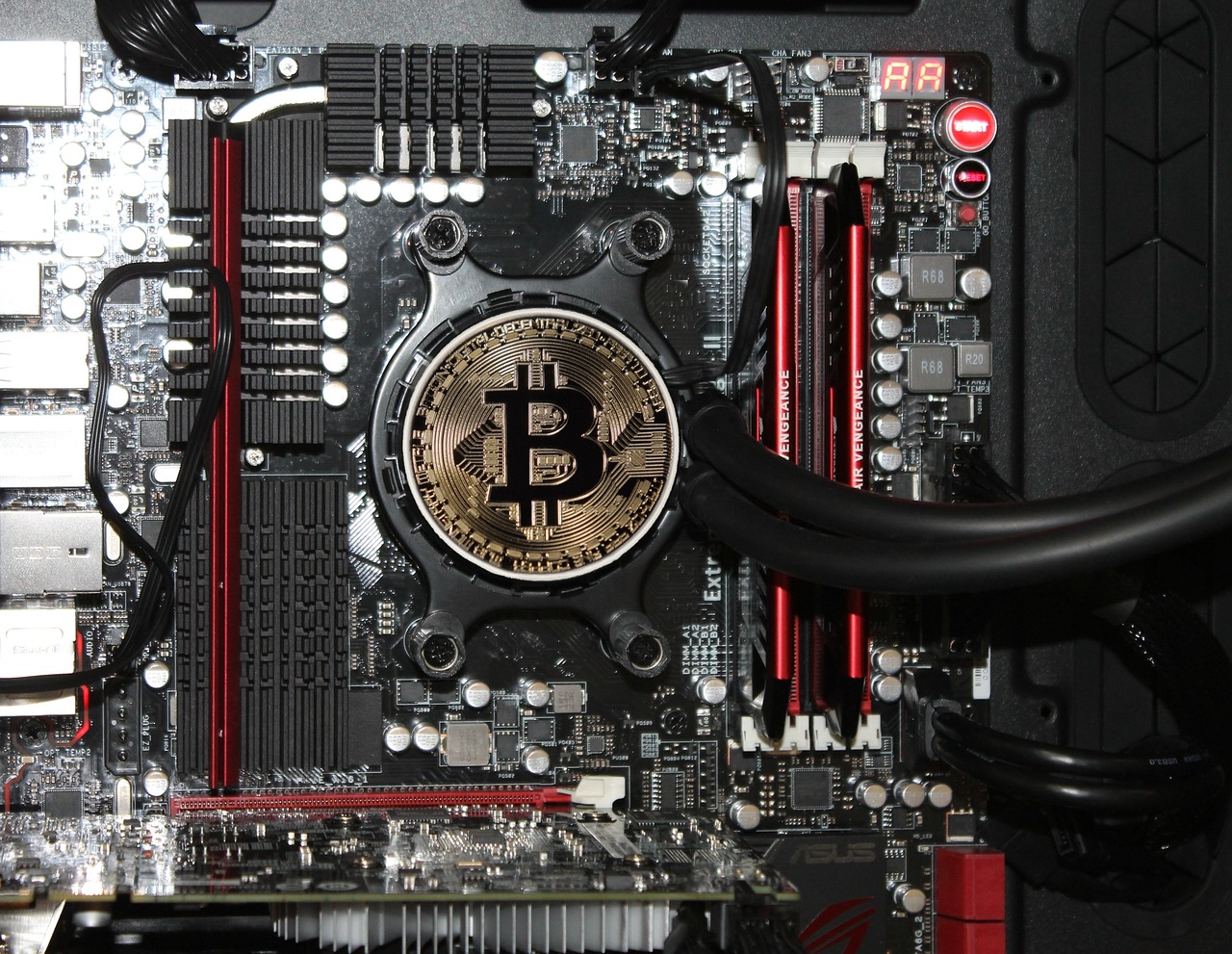
Understanding Exchange Wallets
Exchange wallets are digital wallets provided by cryptocurrency exchanges, designed specifically for storing, sending, and receiving various digital assets. Think of them as your online bank account for cryptocurrencies. When you create an account on a cryptocurrency exchange, you automatically get access to an exchange wallet. This wallet acts as a bridge between your digital assets and the trading platform, allowing you to easily buy, sell, or trade your cryptocurrencies.
One of the key features that sets exchange wallets apart from other types of wallets, such as hardware or software wallets, is their centralization. Unlike decentralized wallets where you have full control over your private keys, exchange wallets are managed by the exchange itself. This means that the exchange holds the keys to your wallet, and you rely on them for security and access to your funds. While this can provide convenience, it also introduces certain risks that every user should be aware of.
To give you a clearer picture, let’s break down the main functionalities of exchange wallets:
- Storage: Exchange wallets allow users to store a variety of cryptocurrencies. You can hold Bitcoin, Ethereum, and many altcoins all in one place, making it easy to manage your portfolio.
- Trading: These wallets are integrated with the exchange platform, allowing for seamless trading. You can quickly convert one cryptocurrency to another without the need to transfer funds to a different wallet.
- Accessibility: Since exchange wallets are online, they can be accessed from anywhere with an internet connection. This can be particularly useful for active traders who need to monitor their investments frequently.
However, this convenience comes with a trade-off. By relying on exchange wallets, users may sacrifice some degree of security and control. For instance, if the exchange suffers a security breach, your funds could be at risk, and you may not have any recourse. In contrast, using a hardware wallet allows you to keep your private keys offline, significantly reducing the risk of hacks.
In summary, understanding exchange wallets is crucial for anyone looking to dive into the world of cryptocurrency. While they provide a user-friendly interface and easy access to trading, it is essential to weigh these benefits against the potential risks. As the crypto landscape continues to evolve, being informed about how exchange wallets function will empower you to make better decisions regarding your digital assets.

Advantages of Using Exchange Wallets
When it comes to managing your cryptocurrency, the advantages of using exchange wallets can be quite compelling. One of the most significant benefits is their ease of access. Unlike some other wallet types that may require a bit of technical know-how, exchange wallets are designed with the user in mind. This means that whether you're a seasoned trader or a complete novice, you can quickly get started without feeling overwhelmed. Imagine walking into a store where everything is clearly labeled and easy to find; that’s the kind of experience exchange wallets aim to provide.
Another notable advantage is the user-friendly interface that most exchanges offer. These platforms typically feature intuitive designs that allow users to navigate effortlessly through their wallets. You can easily send, receive, and trade cryptocurrencies with just a few clicks. This streamlined process is particularly appealing to beginners who might be intimidated by the complexities of cryptocurrency management. Plus, many exchanges provide customer support to assist users with any questions or issues they may encounter, which further enhances the overall experience.
Security is often a top concern for anyone venturing into the world of cryptocurrency, and exchange wallets do not take this lightly. Most exchanges implement robust security measures to protect users' funds. For instance, many platforms utilize two-factor authentication (2FA), which adds an extra layer of security by requiring not just a password but also a second form of verification, such as a code sent to your phone. Additionally, some exchanges employ cold storage options, where the majority of funds are stored offline, making them less susceptible to hacking attempts.
Moreover, many exchanges offer insurance policies that can cover potential losses resulting from hacks or breaches. This means that if the unthinkable happens and your funds are compromised, you may have some level of financial protection. It's a bit like having insurance for your house; while you hope you never need it, it provides peace of mind knowing that you’re covered. Understanding how these insurance policies work can be crucial for users, as they add another layer of security in a space that is often fraught with risks.
Regulatory compliance is another feather in the cap for exchange wallets. Most reputable exchanges adhere to local regulations, which can provide an added layer of security for users. This compliance not only helps in building trust but also ensures that the exchange is operating within the law, reducing the risk of sudden shutdowns or legal issues that could affect your assets. In a market as volatile and unpredictable as cryptocurrency, having a compliant exchange can make a significant difference in your overall experience.
Lastly, the convenience factor cannot be overlooked. With exchange wallets, you can manage multiple cryptocurrencies all in one place. This is particularly beneficial for those who trade frequently or hold a diverse portfolio. Just like having a multi-tool that serves various purposes, exchange wallets allow you to handle different digital assets without the hassle of switching between different wallets.
In summary, while exchange wallets may not be perfect, their advantages make them a popular choice among cryptocurrency users. From ease of access and user-friendly interfaces to robust security measures and regulatory compliance, these wallets cater to a wide range of needs. If you're considering diving into the world of cryptocurrency, understanding these benefits can help you make an informed decision.
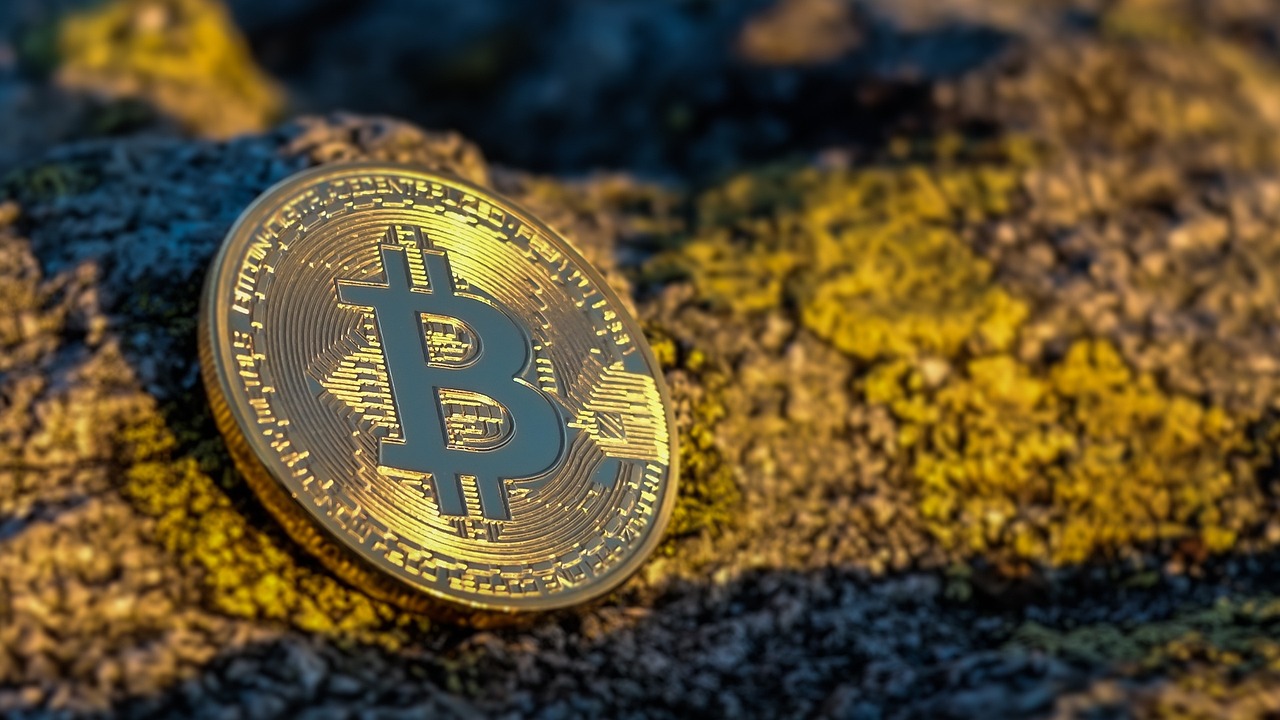
Security Features
When it comes to the world of cryptocurrency, security is paramount. Exchange wallets recognize this and often implement a variety of robust security features designed to protect users' funds. One of the most common security measures is two-factor authentication (2FA). This adds an extra layer of protection by requiring users to provide two forms of verification before accessing their accounts. Think of it as having a double lock on your front door; even if someone has a key, they still need a second key to get in.
Another critical security feature is cold storage. Many exchanges store the majority of their users' assets offline, away from the prying eyes of hackers. This method is akin to keeping your valuables in a safe rather than leaving them out on the coffee table. By keeping funds in cold storage, exchanges significantly reduce the risk of theft from online attacks.
Additionally, some exchanges offer insurance policies to safeguard users against potential losses from hacks or breaches. These policies act as a safety net, providing users with peace of mind. However, it’s essential to read the fine print, as not all insurance policies are created equal. They may cover different types of losses and have various limits.
Moreover, regulatory compliance is another aspect that enhances security. Many exchanges adhere to local and international regulations, which often require them to implement stringent security measures. This compliance not only protects users but also helps to legitimize the exchange in the eyes of the public. It’s like having a stamp of approval from a trusted authority, assuring users that their funds are in safe hands.
In summary, the security features of exchange wallets play a crucial role in protecting users' assets. From two-factor authentication to cold storage and insurance policies, these measures are designed to mitigate risks. However, it's always wise for users to remain vigilant and practice good security hygiene, such as using strong passwords and regularly monitoring their accounts.
- What is two-factor authentication? Two-factor authentication is a security process that requires two different forms of identification before granting access to an account.
- How does cold storage work? Cold storage refers to keeping cryptocurrency assets offline to protect them from online threats.
- Are exchange wallets safe? While they have robust security features, exchange wallets can still be vulnerable to hacks. It's essential to practice good security measures.
- What should I do if my account is compromised? Immediately contact the exchange's customer support, change your passwords, and enable two-factor authentication if you haven't already.

Insurance Policies
When it comes to the world of cryptocurrency, the phrase "not your keys, not your coins" often echoes in the minds of investors. However, many exchanges are stepping up to the plate by offering that can provide a safety net for users in case of unforeseen circumstances like hacks or breaches. But how do these insurance policies actually work, and why should they matter to you as a user?
Essentially, an insurance policy in the context of exchange wallets functions like a security blanket. It aims to protect your assets by compensating you for any losses incurred due to security breaches. While it doesn't eliminate risk entirely, it can offer peace of mind. Here are a few key points to consider regarding these policies:
- Coverage Scope: Typically, insurance policies cover a range of incidents, including hacking, theft, and sometimes even operational failures. However, it’s crucial to read the fine print, as not all losses may be covered.
- Claim Process: In the unfortunate event that you need to file a claim, the process can vary significantly from one exchange to another. Some may require extensive documentation, while others might have a more straightforward approach.
- Premiums and Fees: While many exchanges offer insurance at no additional cost, some may include it in their service fees. It’s essential to understand how these costs are structured and whether they are reflected in your trading fees.
Moreover, it's important to note that the effectiveness of these insurance policies can vary widely between exchanges. Some well-established platforms may have robust insurance frameworks in place, while others might not provide sufficient coverage. Therefore, before you decide to store your cryptocurrency in an exchange wallet, it’s worth doing your homework on the exchange's insurance policies. This can not only save you from potential losses but also give you a clearer picture of the exchange's commitment to user security.
In summary, while insurance policies can be a valuable asset in the realm of cryptocurrency, they should not be viewed as a foolproof solution. Always exercise caution and consider diversifying your storage methods. After all, a wise investor knows that relying solely on one safety net can lead to unexpected pitfalls.
Q1: Are all exchanges required to have insurance policies?
A1: No, not all exchanges are required to have insurance policies. It's up to each exchange to decide whether to offer this feature, so it's important to check their terms and conditions.
Q2: Will insurance cover all my losses?
A2: Insurance policies typically have limitations and exclusions. It's essential to read the fine print to understand what is covered and what is not.
Q3: How do I file a claim if my funds are lost?
A3: The process for filing a claim varies by exchange. Generally, you'll need to provide evidence of the loss and follow the specific procedures outlined by the exchange.
Q4: Is it safe to rely solely on insurance for my cryptocurrency?
A4: While insurance can provide a safety net, it's not a substitute for good security practices. It's advisable to use multiple methods for storing your cryptocurrency, including hardware wallets.
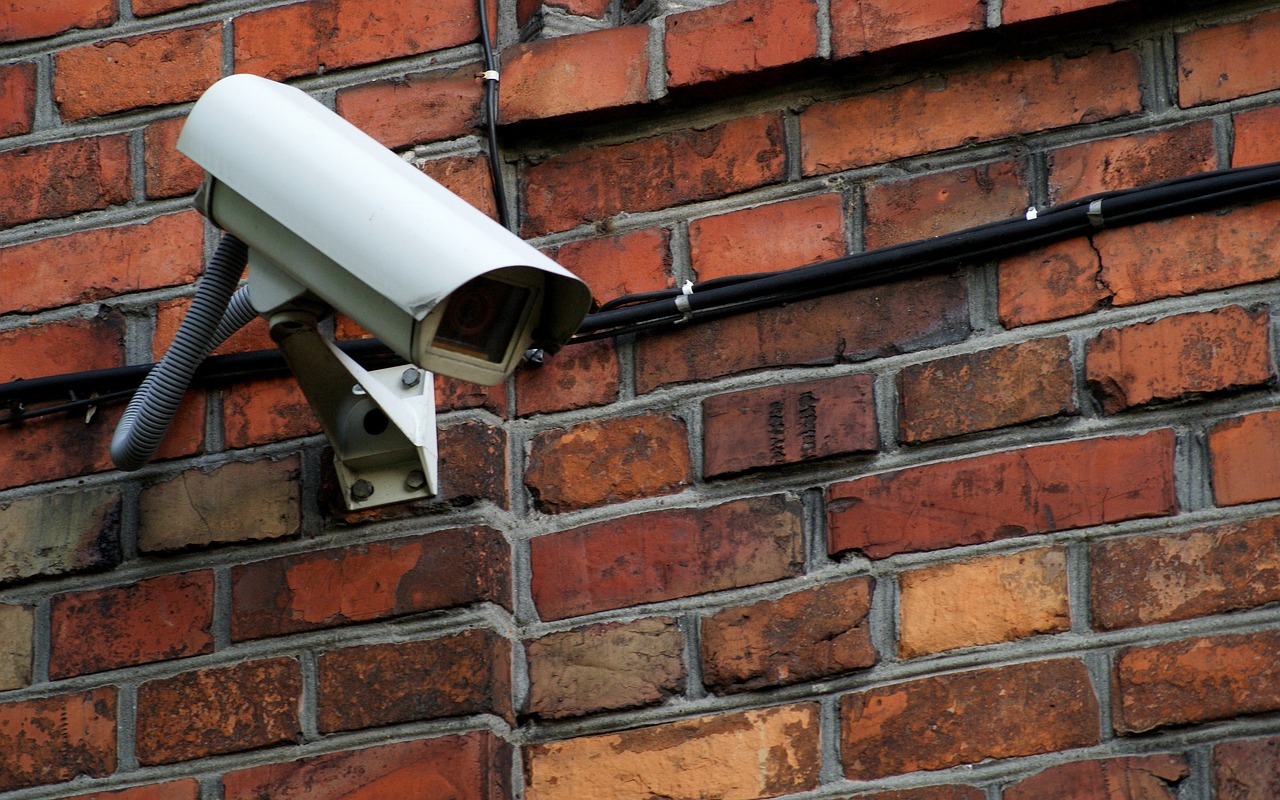
Regulatory Compliance
In the ever-evolving world of cryptocurrency, has emerged as a crucial factor for both users and exchanges alike. When we talk about exchange wallets, it’s essential to understand that they often operate under strict regulatory frameworks designed to protect consumers and maintain the integrity of the financial system. These regulations vary significantly across different countries, but they generally aim to combat issues such as money laundering, fraud, and terrorism financing.
Many cryptocurrency exchanges take compliance seriously, implementing rigorous Know Your Customer (KYC) and Anti-Money Laundering (AML) policies. These measures require users to verify their identities before they can trade or withdraw funds, which adds a layer of security and transparency to the process. While this might seem cumbersome to some, it ultimately helps in fostering a safer trading environment. By adhering to these regulations, exchanges can build trust with their users, making them more likely to engage with the platform.
Moreover, regulatory compliance can also lead to better partnerships with traditional financial institutions. When exchanges demonstrate that they follow the law, banks and other financial entities are more willing to collaborate with them, enabling smoother transactions and potentially expanding the services offered to users. This is particularly important as the cryptocurrency market continues to mature and integrate with mainstream finance.
However, it’s important to note that the regulatory landscape is not static; it’s constantly changing. As governments around the world grapple with how to manage cryptocurrencies, regulations can shift, sometimes unexpectedly. This uncertainty can pose challenges for exchanges and their users. For example, an exchange that operates legally today may find itself facing new regulations tomorrow that could affect its operations or even lead to its closure.
In summary, while regulatory compliance can enhance the security and legitimacy of exchange wallets, it also introduces a layer of complexity that users must navigate. Being aware of the regulatory environment in your jurisdiction and choosing exchanges that prioritize compliance can significantly impact your overall experience in the cryptocurrency space.
- What is regulatory compliance in cryptocurrency? Regulatory compliance involves adhering to laws and regulations designed to prevent fraud, money laundering, and other illegal activities in the cryptocurrency space.
- Why is regulatory compliance important for exchanges? It helps build trust with users, allows for partnerships with traditional financial institutions, and ensures a safer trading environment.
- How does KYC affect my experience with exchange wallets? KYC processes require you to verify your identity, which can enhance security but may also add steps before you can trade or withdraw funds.
- Can regulations change over time? Yes, the regulatory landscape is constantly evolving, and exchanges must adapt to new laws and guidelines that may affect their operations.
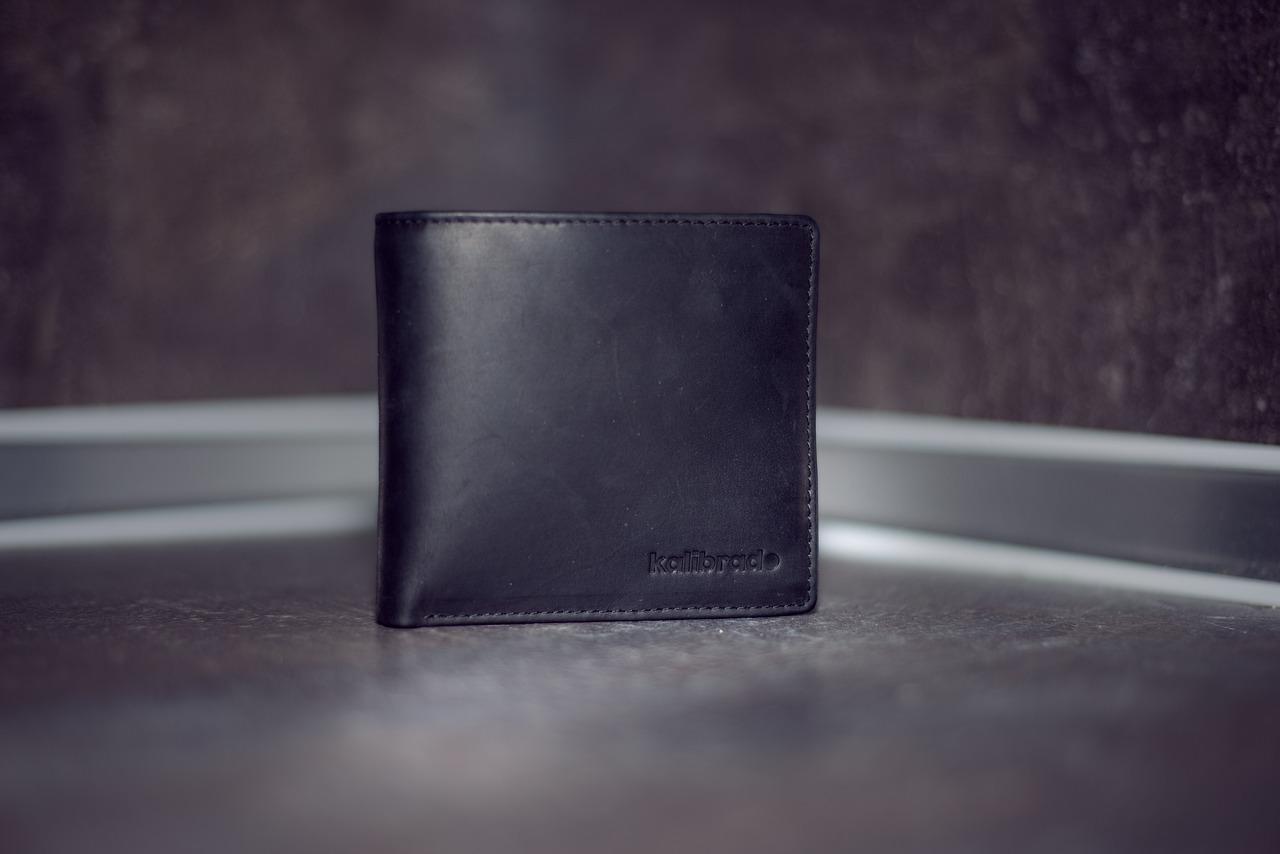
User Experience
When it comes to navigating the world of cryptocurrency, the of exchange wallets can make all the difference. Imagine walking into a bustling marketplace where everything is bright, organized, and easy to find. That’s what a well-designed exchange wallet feels like. These wallets are crafted with intuitive interfaces that cater to both novices and seasoned traders alike. With a few clicks, users can send, receive, and manage their digital assets without feeling overwhelmed. It's like having a personal assistant who knows exactly what you need and when you need it.
One of the standout features of exchange wallets is their user-friendly design. Most platforms prioritize simplicity, ensuring that even those who are new to cryptocurrency can navigate through the functionalities with ease. For instance, the dashboard typically displays your balance, recent transactions, and a clear pathway to buy or sell assets. This streamlined approach reduces the learning curve significantly. Users often find themselves saying, "I didn't think it would be this easy!"
Moreover, the customer support offered by many exchanges adds another layer of comfort. Imagine having a friendly guide available 24/7 to assist you when you hit a snag. Whether it’s a question about a transaction or a technical issue, responsive customer service can alleviate frustrations. Many exchanges provide support through various channels, including live chat, email, and even community forums. This accessibility fosters a sense of trust and reliability, making users feel more secure in their transactions.
In addition to ease of use and customer support, exchange wallets often include educational resources. These resources can range from tutorial videos to comprehensive guides that help users understand the ins and outs of cryptocurrency trading. It’s akin to having a mini-course at your fingertips, equipping you with the knowledge to make informed decisions. This educational aspect is particularly beneficial for beginners who may feel daunted by the complexities of the crypto market.
However, it’s essential to acknowledge that while the user experience is generally positive, it can vary from one exchange to another. Some wallets may lack certain features or have less intuitive designs, which can lead to confusion. Therefore, it’s wise for users to do their homework and choose an exchange that aligns with their preferences and needs. A side-by-side comparison of popular exchanges can provide valuable insights into which platform might be the best fit.
In conclusion, the user experience offered by exchange wallets is a crucial factor that can enhance or hinder your cryptocurrency journey. With their intuitive interfaces, robust customer support, and educational resources, these wallets strive to create a seamless experience for users. However, as with any tool, the key is to find the right fit for your specific needs. After all, a positive user experience can transform the often daunting world of cryptocurrency into an engaging and rewarding adventure.

Disadvantages of Using Exchange Wallets
While exchange wallets come with a host of benefits, they also harbor some significant drawbacks that potential users should carefully consider. One of the most glaring issues is the security risks associated with these wallets. Despite the implementation of various security features, exchange wallets are prime targets for hackers. High-profile hacks have made headlines, leaving users questioning the safety of their funds. For instance, in 2014, the Mt. Gox exchange was compromised, resulting in the loss of 850,000 Bitcoins. This incident serves as a stark reminder that even the most reputable exchanges can fall victim to cyberattacks.
Moreover, the reliance on exchange wallets means that users often have limited control over their funds. When you store your cryptocurrencies in an exchange wallet, you are essentially trusting a third party with your private keys. This lack of control can be unsettling, especially for those who value the principles of decentralization that cryptocurrencies were built upon. Imagine handing over the keys to your house to a stranger; it’s a similar feeling when you allow an exchange to manage your assets.
Additionally, the user experience can be a double-edged sword. While many exchanges strive to create intuitive interfaces, the complexity of some features can overwhelm beginners. For instance, trading functionalities, fee structures, and withdrawal limits can be confusing. If you’re not careful, you might find yourself incurring unexpected fees or making mistakes that could cost you dearly. This complexity can deter new users who might otherwise be interested in exploring the world of cryptocurrencies.
Another downside is the potential for regulatory issues. As governments around the world continue to grapple with how to regulate cryptocurrencies, exchanges can find themselves in precarious positions. Regulatory crackdowns can lead to sudden changes in policies, affecting users' access to their funds. For example, if an exchange is forced to shut down due to legal issues, users may find themselves unable to withdraw their assets, leading to financial losses.
In conclusion, while exchange wallets can offer convenience and ease of use, they come with considerable risks that users should not overlook. The balance between accessibility and security is delicate, and it’s crucial for users to weigh these factors carefully before deciding to store their cryptocurrencies in an exchange wallet.
- What are exchange wallets? Exchange wallets are digital wallets provided by cryptocurrency exchanges for storing, sending, and receiving digital assets.
- Are exchange wallets safe? While they have security measures in place, they are still vulnerable to hacks and breaches.
- Can I control my private keys in an exchange wallet? No, users typically do not have control over their private keys when using exchange wallets.
- What happens if an exchange goes bankrupt? Users may lose access to their funds if the exchange is unable to fulfill withdrawals due to bankruptcy or regulatory issues.
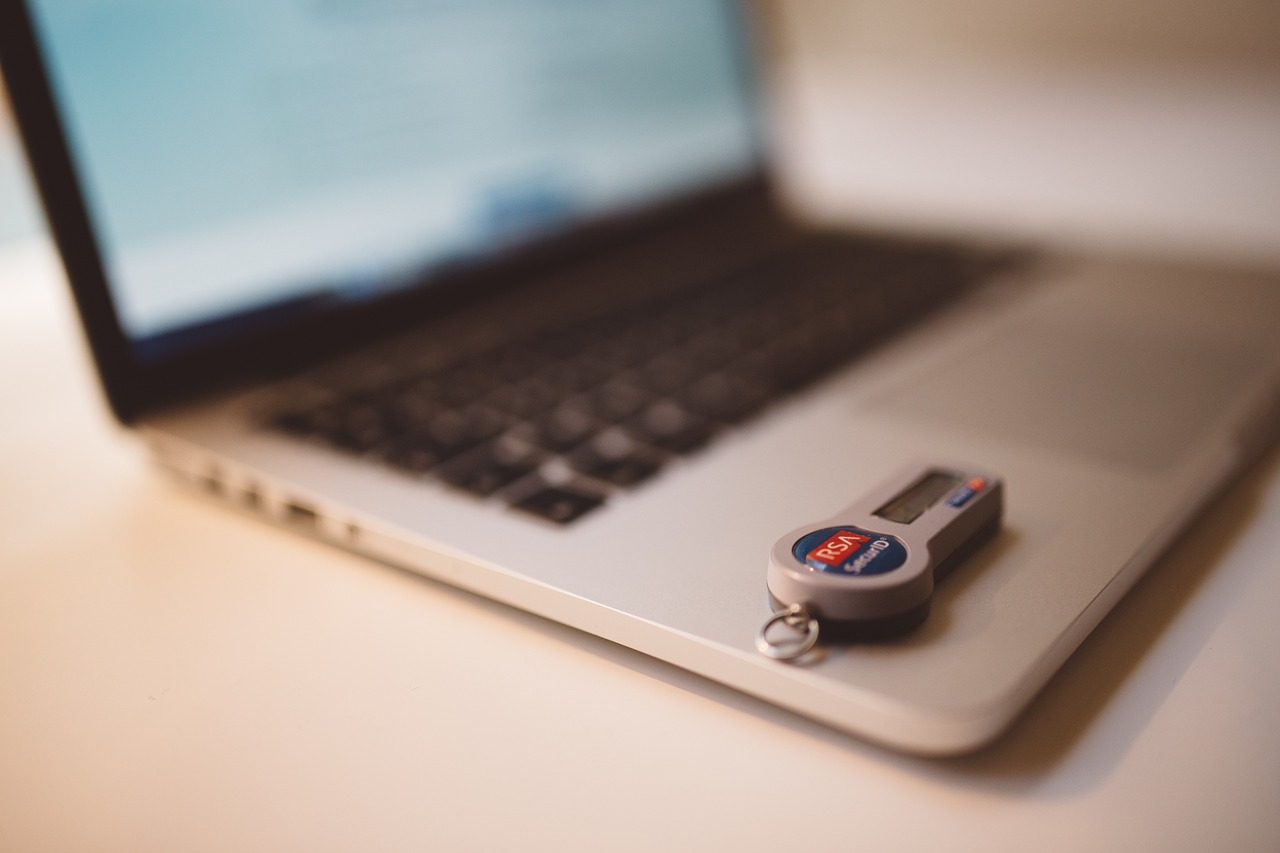
Security Risks
When it comes to cryptocurrency, security is a paramount concern, and while exchange wallets offer some protective measures, they are not without their vulnerabilities. One of the most significant risks associated with using exchange wallets is the potential for hacks. In recent years, numerous high-profile exchange hacks have led to substantial losses for users. For instance, in 2014, Mt. Gox, once the largest Bitcoin exchange, was hacked, resulting in the loss of 850,000 Bitcoins, which at the time was worth around $450 million. This incident serves as a stark reminder that even well-established exchanges can fall victim to cybercriminals.
Moreover, exchange wallets are centralized, which means that all user funds are stored in a single location. This centralization can create a tempting target for hackers. Unlike decentralized wallets, where users control their private keys, exchange wallets manage these keys on behalf of their users. This lack of direct control means that if an exchange is compromised, users risk losing their funds without any recourse.
Additionally, the security protocols of exchanges can vary significantly. While many exchanges implement robust security measures such as two-factor authentication (2FA) and encryption, others may not prioritize security as much. A common misconception is that simply using an exchange wallet provides adequate protection; however, the reality is that users must remain vigilant. Regularly updating passwords, utilizing 2FA, and being cautious of phishing attempts are essential practices that users should adopt to enhance their security.
Another risk is the potential for internal fraud or mismanagement by the exchange itself. Employees with access to sensitive information could exploit their positions, leading to unauthorized withdrawals. This risk is compounded by the fact that many exchanges operate in jurisdictions with varying regulations, making it difficult for users to seek legal recourse in the event of a breach.
To illustrate the security landscape of exchange wallets, consider the following table that summarizes notable exchange hacks and their impacts:
| Exchange | Year | Amount Lost | Impact |
|---|---|---|---|
| Mt. Gox | 2014 | 850,000 BTC | Bankruptcy and loss of user funds |
| Bitfinex | 2016 | 120,000 BTC | Loss of user trust and financial recovery measures |
| Coincheck | 2018 | 500 million NEM | Regulatory scrutiny and market impact |
In conclusion, while exchange wallets provide a convenient way to store and trade cryptocurrencies, users must be aware of the inherent security risks. The centralized nature of these wallets, combined with the potential for hacks and internal fraud, creates a landscape where users need to exercise caution. Ultimately, being informed and proactive about security can make a significant difference in safeguarding your digital assets.
- What are exchange wallets? Exchange wallets are digital wallets provided by cryptocurrency exchanges for storing, sending, and receiving cryptocurrencies.
- Are exchange wallets safe? While they offer some security features, exchange wallets are vulnerable to hacks and other risks.
- How can I protect my funds in an exchange wallet? Use strong passwords, enable two-factor authentication, and be cautious of phishing attempts.
- What should I do if my exchange wallet gets hacked? Contact the exchange immediately, and if possible, report the incident to law enforcement.
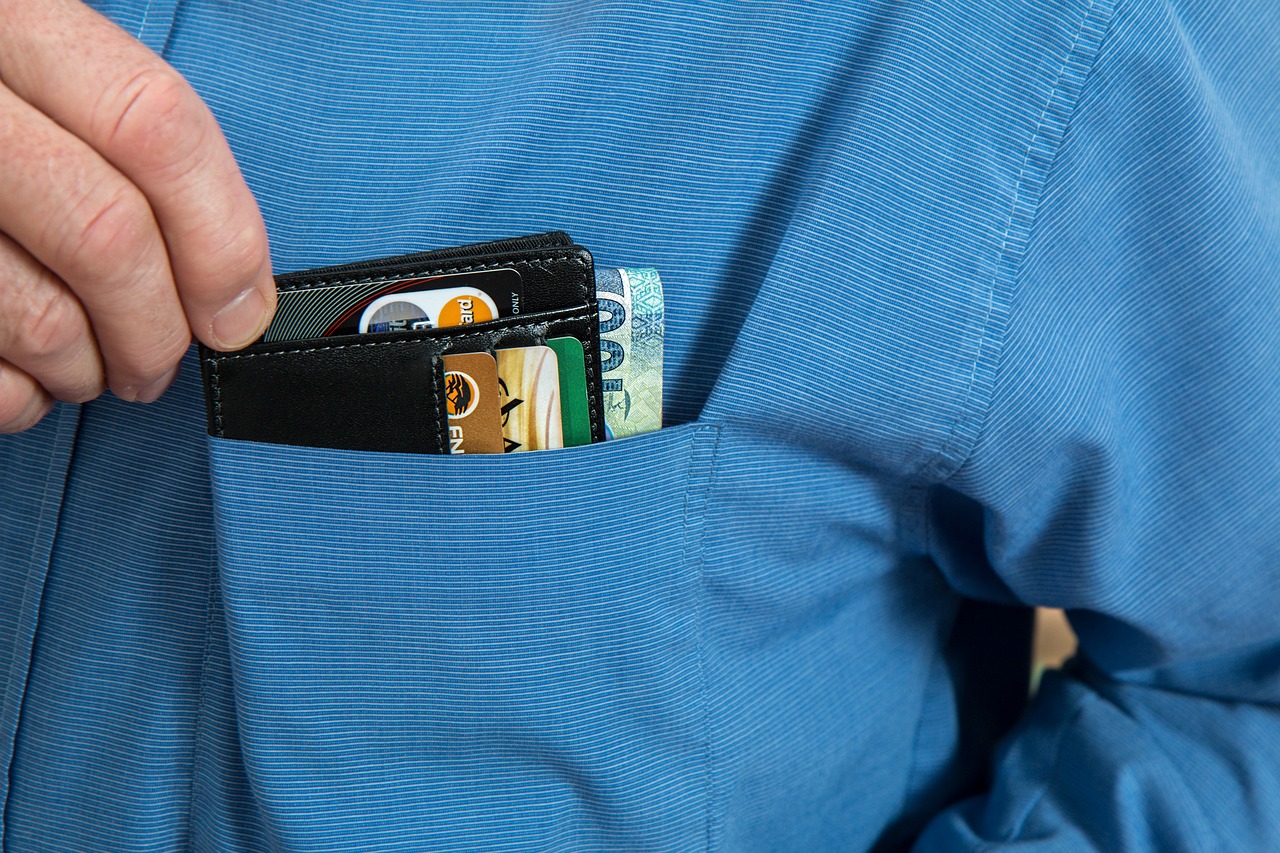
Lack of Control
When it comes to using exchange wallets, one of the most significant drawbacks is the users have over their private keys. In the world of cryptocurrency, private keys are akin to the keys to your safe; they grant access to your funds. However, with exchange wallets, these keys are often held by the exchange itself, meaning you are essentially entrusting your assets to a third party. This can be a daunting prospect for many, especially given the infamous hacks and breaches that have occurred in the crypto space.
Imagine walking into a bank and handing over your money, only to find out that you don’t have the ability to withdraw it without their permission. That’s the reality of using an exchange wallet. You might have easy access to your funds for trading, but when it comes to actual ownership, you’re at the mercy of the exchange’s policies and security measures. If the exchange faces issues, whether it be technical failures or security breaches, your funds could be jeopardized.
Moreover, the implications of relying on third-party services extend beyond just security. Users may encounter restrictions on withdrawals, delays in accessing funds, or even changes in terms of service that could affect how they interact with their assets. For instance, if an exchange decides to implement new verification processes or limits on withdrawals, users may find themselves unable to access their funds when they need them the most. This lack of control can create a sense of unease and frustration, particularly for those who value autonomy over their financial assets.
In addition, the potential for mismanagement is another concern. Exchanges are not infallible; they can make mistakes, and users might suffer the consequences. If a user’s funds are mismanaged or lost due to an error on the exchange’s part, recovering those assets can be a complicated and stressful process. Therefore, understanding the implications of this lack of control is crucial for anyone considering using an exchange wallet.
In conclusion, while exchange wallets offer convenience and accessibility, the trade-off is a significant loss of control over your assets. It’s essential for users to weigh these risks carefully and consider whether the ease of use is worth the potential vulnerabilities that come with entrusting a third party with their cryptocurrency.
Frequently Asked Questions
- What are exchange wallets?
Exchange wallets are digital wallets provided by cryptocurrency exchanges to store, send, and receive cryptocurrencies. They are designed for ease of use, making them ideal for both beginners and experienced users who want quick access to their funds.
- What are the main advantages of using exchange wallets?
Some key advantages include user-friendly interfaces, easy access to funds, and the ability to trade cryptocurrencies directly on the exchange. Additionally, many exchanges offer robust security features, such as two-factor authentication and insurance policies against hacks.
- Are exchange wallets secure?
While exchange wallets do implement various security measures, they are not entirely foolproof. They can still be vulnerable to hacks and breaches. Users should always be cautious and consider additional security practices, such as using two-factor authentication.
- What should I know about insurance policies offered by exchanges?
Many cryptocurrency exchanges provide insurance policies that cover potential losses from hacks or breaches. This means that if the exchange suffers a security incident, users may be compensated for their lost funds, adding an extra layer of security.
- Can I control my private keys with exchange wallets?
No, when using exchange wallets, you typically do not have control over your private keys. This means you are relying on the exchange to manage your funds, which can be a significant risk if the exchange experiences issues or goes offline.
- What are the risks associated with using exchange wallets?
The main risks include the potential for hacks, lack of control over private keys, and the reliance on third-party services. If an exchange is compromised, your funds could be at risk, which is why understanding these risks is crucial before using an exchange wallet.
- Is it safe to store large amounts of cryptocurrency in exchange wallets?
It is generally not recommended to store large amounts of cryptocurrency in exchange wallets due to the associated risks. For long-term storage, consider using hardware wallets or other types of wallets that give you control over your private keys.
- How do I choose a reliable exchange wallet?
When choosing an exchange wallet, look for reputable exchanges with strong security measures, positive user reviews, and compliance with regulations. Researching the exchange's history and security track record can also help you make an informed decision.



















